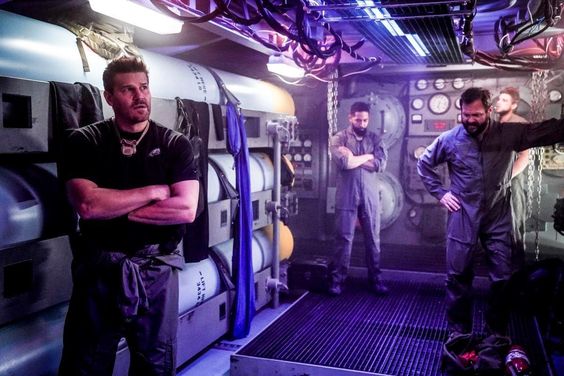
In the intense world of military operations, the line between life and death is often blurred. This reality is poignantly captured in the character of Jason Hayes from the acclaimed television series SEAL Team. As the seasoned leader of the Bravo Team, Jason not only grapples with the responsibilities that come with commanding an elite unit but also bears the heavy weight of personal loss. His journey through grief, leadership, and resilience serves as a powerful testament to the human spirit in the face of adversity. This article explores how Jason Hayes navigates the pain of loss while fulfilling his duties as a leader, showcasing his complexities and strengths.
The Impact of Loss
At the heart of Jason’s character lies a profound sense of loss. Early in the series, viewers witness the emotional toll that the death of his close friend and team member, Ben (who is killed in action), takes on him. This tragic event not only affects Jason personally but also resonates throughout the Bravo Team, creating a ripple effect of grief and responsibility. The burden of being the leader weighs heavily on his shoulders as he grapples with feelings of guilt and sorrow for not being able to save his friend.
Loss is a recurring theme in Jason’s life, and it manifests in various ways. He struggles with the emotional scars that come from the battlefield, leading him to question his decisions and capabilities. The memories of fallen comrades haunt him, creating an internal battle that often leaves him feeling isolated and burdened. This struggle is not only a personal one; it also influences how he leads his team, highlighting the delicate balance between being a strong leader and dealing with profound grief.
Embracing Vulnerability
One of the most significant aspects of Jason’s journey is his ability to embrace vulnerability. Initially, he tries to maintain a stoic facade, believing that showing emotions might undermine his authority. However, as the series progresses, he learns the importance of expressing his feelings—not just for his own healing but also to foster trust and camaraderie within his team.
In moments of vulnerability, Jason opens up to his team members, sharing stories of loss and the emotional toll of their profession. This honesty creates a deeper bond among the Bravo Team, allowing them to understand that they are not alone in their struggles. By acknowledging his pain, Jason sets an example for his team, demonstrating that vulnerability can be a source of strength rather than a weakness.
The Role of Leadership
As the leader of the Bravo Team, Jason Hayes faces immense pressure to perform under extraordinary circumstances. The responsibilities of leadership are compounded by the emotional toll of loss, which can cloud judgment and decision-making. However, Jason approaches his role with a deep sense of duty and commitment to his team. He understands that their safety and success rely on his ability to lead effectively, even in the face of personal turmoil.
Jason employs various strategies to manage the burden of leadership while navigating his grief. He relies on open communication with his team, encouraging them to voice their concerns and emotions. This practice not only fosters a supportive environment but also strengthens their collective resilience. By creating a culture of trust and transparency, Jason allows his team to thrive, even amidst the chaos of their missions.
Finding Balance Through Coping Mechanisms
To cope with his pain and the pressures of leadership, Jason adopts various coping mechanisms. Physical fitness plays a crucial role in his routine, providing an outlet for stress and a way to channel his emotions positively. Whether through intense workouts or engaging in outdoor activities, Jason finds solace in physical challenges that help clear his mind and refocus his energy.
Additionally, Jason seeks support from his family and friends outside of the military. His relationship with his son, Drew, serves as a grounding force in his life. By investing time in his family, Jason discovers a sense of purpose and joy that helps counterbalance the heaviness of his responsibilities. These moments of connection remind him of the importance of love and support in healing from loss.
The Journey of Healing
Throughout the series, Jason Hayes embarks on a journey of healing. He learns that grief is not a linear process and that it is essential to confront the pain rather than suppress it. Therapy becomes a valuable tool for Jason as he seeks to understand his emotions and work through his trauma. By engaging in therapy, he gains insights into his behavior and the impact of loss on his life and leadership style.
As Jason progresses on his healing journey, he becomes more attuned to the needs of his team. His experiences with loss enable him to empathize with their struggles, fostering a deeper connection among the Bravo Team. This understanding enhances his leadership, allowing him to navigate challenges with compassion and wisdom.
Conclusion
Jason Hayes is a complex character who exemplifies the intersection of leadership and personal struggle in the military world. His ability to deal with the pain of loss while leading the Bravo Team showcases the resilience of the human spirit. By embracing vulnerability, fostering open communication, and seeking support, Jason navigates the challenges of leadership with grace and determination. His journey serves as an inspiring reminder that even in the face of profound grief, it is possible to find strength, purpose, and healing. Through his story, SEAL Team illuminates the enduring power of connection and the importance of addressing one’s emotions in the pursuit of excellence.